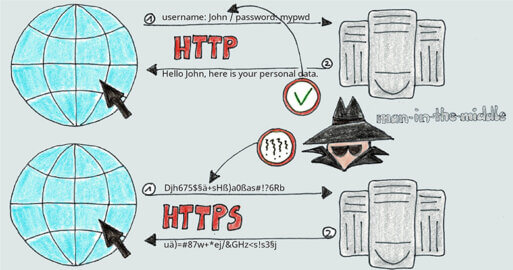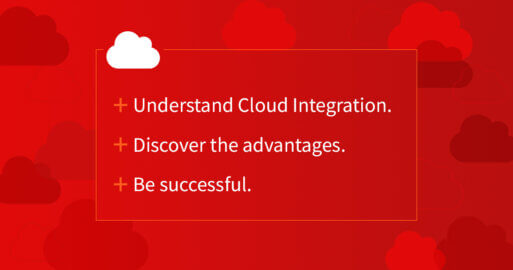IT Security: The Key Component for Protecting Business Operations in the Cloud

IT security is the key component for protecting business operations in the cloud. As digitalization continues, more and more companies are moving their data and processes to the cloud to reduce costs, increase efficiency and improve agility. However, this shift also comes with extensive security requirements. Companies increasingly need to protect their sensitive data from internal and external threats such as cyber attacks or ransomware. At the same time, it is important to ensure compliance with a growing number of IT security guidelines and data protection regulations.

In this blog, we’ll take a closer look at the specific aspects of cloud security and explain how SEEBURGER specifically addresses them.
SEEBURGER’s approach to cloud security
It is a fundamental requirement that cloud providers secure their services in accordance with applicable regulations. SEEBURGER provides cloud security through corresponding certifications and audits by third-party auditors, which are provided upon request.
However, securing IT landscapes is becoming increasingly important, complex and expensive. The SEEBURGER BIS Platform represents a critical component in the customer’s IT landscape that must be protected beyond regular measures. The technical and organizational measures implemented by SEEBURGER for this purpose include firewalls, virus scanners, network segmentation, encryption and intrusion detection systems (IDS), as well as the privilege access principle, security training and promotion of security awareness among employees, access controls and regular security checks.
These five measures are part of SEEBURGER’s extensive cloud-security standard:
- Server and network security: The security of servers and networks forms an essential line of defense against external attacks. At SEEBURGER, strict measures are taken to ensure that the network is protected from external attacks by firewalls and virus scanners. The servers are configured securely and the individual customer systems are properly separated (segregation). Data flow monitoring (traffic analysis) and attack detection systems (IDS) are also in place to detect and respond to unusual activity. Regular security tests of all cloud services and applications (including penetration tests) by internal and external specialists also ensure that the security infrastructure is continuously updated and can thus withstand new threats.
- Identity and access management: SEEBURGER solutions employ robust identity and access management to ensure only authorized users can access critical system components. Mechanisms such as multi-factor authentication, role-based access control, least privilege access and regular access checks are some of the measures used.
- Information security: SEEBURGER employs several strategies to ensure the confidentiality, integrity and availability of data stored in the cloud. These include data encryption, both at rest and in transit, as well as permanent awareness raising and training of all employees to create awareness of security risks and promote security-conscious behavior. Regular security audits and security policies that meet the requirements of the General Data Protection Regulation (GDPR) are essential. Through regular certification according to ISO 27001 as well as auditing according to ISAE 3402, SEEBURGER also provides independent proof that SEEBURGER Cloud Services fully meet modern security requirements.
- Application and platform security: As cloud applications are often very complex, SEEBURGER focuses heavily on the security of these applications right from the development phase. Regulations such as the principle of least privilege, separation of functions and regular vulnerability checks are some of the methods applied, which are based on the “SEEBURGER Secure Software Development Lifecycle”. This product security program provides a framework for training, design and implementation processes supported by controls and tools. An established change and release management process ensures that the cloud systems are continuously kept up to date with the latest security. This applies not only to the SEEBURGER BIS platform itself, but also to the operating systems and databases on which it is run.
- Physical security: SEEBURGER ensures that the data centers used for the cloud services adhere to strict security protocols. This includes controlled access, monitoring, fire protection measures and redundant infrastructures.
SEEBURGER Excellence and “Extra Mile“
In addition to the measures already outlined, the availability of qualified security specialists is crucial to implementing an effective security strategy and responding appropriately to security incidents. These experts have the expertise and experience to design, implement and monitor a robust and appropriate security infrastructure. They can also assist in the investigation of security incidents and take appropriate countermeasures.
Thanks to its global organization with subsidiaries in 17 countries, SEEBURGER has access to qualified specialists worldwide. This enables SEEBURGER to recruit the specialists it needs, despite the current challenge due to the shortage of (IT) specialists. In addition, SEEBURGER invests in a high number of traineeships in order to meet the demand for IT specialists in the long term and on a permanent basis.
In addition to the availability of security specialists, SEEBURGER takes this one step further by clearly defining responsibilities in the area of security. As the following diagram illustrates, SEEBURGER has realized that IT security is now a profession in its own right and has therefore established six specific responsibilities and committees that are firmly anchored in the organization. In this way, we ensure that the topic of IT security is addressed permanently, centrally and independently, without being influenced by conflicts of interest or time.

Thanks to this organizational structure, SEEBURGER can ensure permanent protection against current and future threats and respond quickly and efficiently in the event of an emergency.
Future of cloud security with SEEBURGER
In an ever-changing digital landscape, cloud security is an ongoing process that must continuously adapt to the latest threats and challenges. SEEBURGER strives to continuously improve its cloud security solutions and adopt new technologies. We place particular focus on areas such as artificial intelligence and machine learning, as these have the potential to significantly improve cloud security.
An important part of our strategy is to view cloud security as an integral part of the customer experience. This means that beyond certification, customers benefit not only from robust security measures, but also from the assurance that their data and communications are secure anytime, anywhere.
In conclusion, SEEBURGER offers its customers not only powerful and secure cloud services, but also the confidence and assurance that their data and communications are in safe hands. With SEEBURGER as a partner, companies can exploit the full potential of the cloud while effectively protecting their IT systems and sensitive data.
Webcast on-demand
Webcast Series: Cloud as a Competitive Advantage – Get All the Facts Straight
Security: IT Security as Key Component for Secure Business Operations in the Cloud
Watch nowThank you for your message
We appreciate your interest in SEEBURGER
Get in contact with us:
Please enter details about your project in the message section so we can direct your inquiry to the right consultant.
Written by: Rolf Holicki, Manuel Veith
Manuel Veith is a Presales Engineer for cloud and managed services at SEEBURGER. Manuel worked in the automotive industry from 2001 to 2021 where he spent the last ten years involved in subscription & pay per use business models. He recently joined SEEBURGER to combine his information systems degree with his professional experience in sales. Rolf Holicki, Director BU E-Invoicing, SAP&Web Process, is responsible for the SAP/WEB applications and digitization expert. He has more than 25 years of experience in e-invoicing, SAP, Workflow and business process automation. Rolf Holicki has been with SEEBURGER since 2005.





